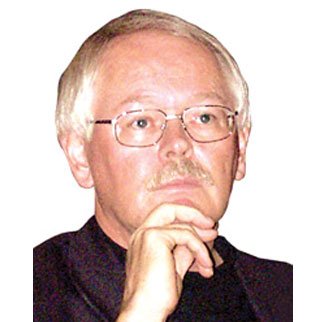
Fr. Ron Rolheiser
Ronald Rolheiser, a Roman Catholic priest and member of the Missionary Oblates of Mary Immaculate, is president of the Oblate School of Theology in San Antonio, Texas.
He is a community-builder, lecturer and writer. His books are popular throughout the English-speaking world and his weekly column is carried by more than seventy newspapers worldwide.
Fr. Rolheiser can be reached at his website, www.ronrolheiser.com.
May your Kingdom come, just not yet
We’re all guilty of pushing things into the future
How we react to criticism and opposition
Have you ever noticed how we spontaneously react to a perceived threat? Our primal instincts tend to take over and we instantly freeze and begin to shut all the doors opening to warmth, gentleness and empathy inside us.
Our timidity in the face of God’s abundance
My youth had both its strengths and its weaknesses. I grew up on a farm in the heart of the Canadian prairies, a second-generation immigrant. Our family was a large one and the small farm we lived on gave us enough to live on, though just enough.
Fearing our own maturity
Our bodies and our souls each have their separate aging process, and they aren’t always in harmony. Thus, T.E. Laurence, in The Seven Pillars of Wisdom, makes this comment about someone: “He feared his maturity as it grew upon him, with its ripe thought and finished art, but which lacked the poetry of boyhood to make living a full end of life ... his rangeful, mortal soul was aging faster than his body, was going to die before it, like most of ours.”
Karma will always get you in the end
In 1991 Hollywood produced a comedy entitled City Slickers starring Billy Crystal. In a quirky way it was a wonderfully moral film, focusing on three middle-aged men from New York City who were dealing with midlife crisis.
Walking on water, sinking like a stone
Faith isn’t something you ever simply achieve. It’s not something that you ever nail down as a fait accompli. Faith works this way: Some days you walk on water and other days you sink like a stone. Faith invariably gives way to doubt before it again recovers its confidence, then it loses it again.
Focus on what is found, not what is lost
Sometimes everything can seem right on the surface while, deep down, nothing is right at all. We see this, for example, in the famous parable in the Gospels about the Prodigal Son and his older brother. By every outward appearance the older brother is doing everything right: He’s perfectly obedient to his father, is at home and is doing everything his father asks of him. And, unlike his younger brother, he’s not wasting his father’s property on prostitutes and partying. He seems a model of generosity and morality.
Linking human energy to God within
Few thinkers have influenced me as profoundly as Robert L. Moore. Moore is a scholar who has spent almost 50 years studying human energy from the perspective of psychology, anthropology and spirituality. Few scholars are his equal in linking human energy, even when it is raw and grandiose, to the image and likeness of God inside of us. He merits an audience.
On being perpetually distracted
There’s a story in the Hindu tradition that runs something like this: God and a man are walking down a road. The man asks God: “What is the world like?” God answers: “I’d like to tell you, but my throat is parched. I need a cup of cold water. If you can go and get me a cup of cold water, I’ll tell you what the world is like.” The man heads off to the nearest house to ask for a cup of cold water. He knocks on the door and it is opened by a beautiful young woman. He asks for a cup of cold water. She answers: “I will gladly get it for you, but it’s just time for the noon meal, why don’t you come in first and eat.” He does.
We often weary in our patience
Before the airline hijackings of Sept. 11, 2001, before the shoe-bomber and others like him, it was simpler to travel by air. You didn’t need to take off your shoes to pass through security, you could carry liquids with you, laptops and other electronic devices, if you had any, did not have to be brought out of your carry-on bags. The door to the cockpit wasn’t barricaded with steel, and there was much less paranoia in general about security. You even got to see the pilot occasionally.

